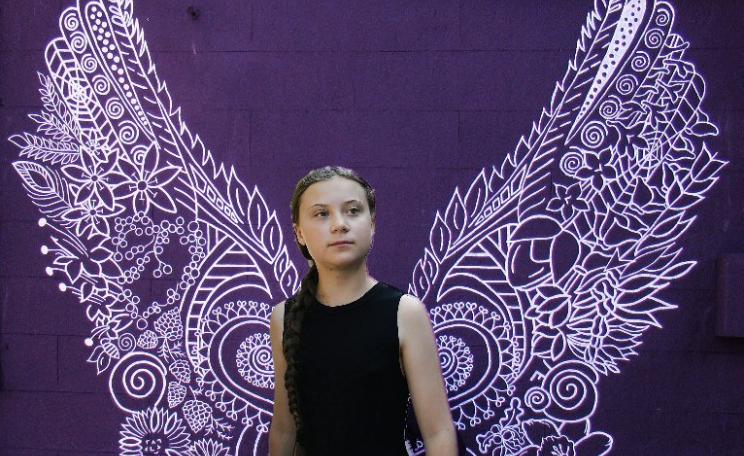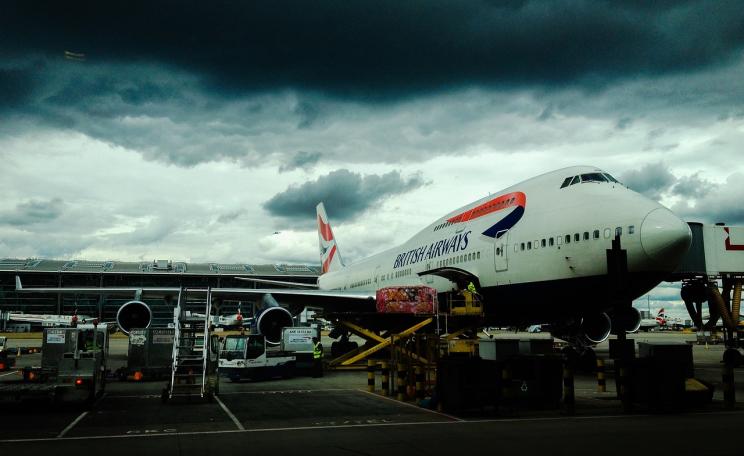*
Overall, how happy did you feel yesterday? This question has been posed to the British public each year since 2011, after David Cameron decided to construct a National Happiness Index, mooted to replace GDP as a measure of the nation’s wellbeing.
This attempt to quantify the experience of happiness in the individual was the impetus of Lynne Segal’s wonderfully affirming book Radical Happiness.
The latest edition of Resurgence & Ecologist magazine is out now!
“I began by looking into the promotion and measuring of happiness with the idea that it’s some quantifiable inner event,” Segal tells me. “I say, actually, no emotions are like that. All emotions are far more complex and mixed, far more contradictory. And what’s more, they have a public dynamic as well as a personal dynamic.”
Collective joy
This insight is central to the book’s subtitle, Moments of Collective Joy. For Segal, the idea that happiness can be individuated is a particularly pernicious aspect of neoliberalism.
On the contrary, she believes that joy is communal by nature, and that happiness in life can only come from recognition of our dependency on one another and on Nature.
“Everything I write is an argument for our need to recognise our ties to others, and that’s the only way to escape the gloomy ties to the self we’re pushed ever more into,” she tells me.
“Joy, it seems to me, is almost quintessentially collective,” she continues. “Even if it’s coming from something like the view from a mountaintop, we want to be able to share it. The more we can share something, the more it will stay and linger.”
This outlook explains Segal’s suspicion of what we might term as the ‘wellbeing industry’, in which unhappiness is to be treated as a personal defect that can be remedied through some combination of marketised medicine and mindfulness. In such an approach, structural issues that might have given rise to legitimate unhappiness are obscured. Segal sees things differently.
Socialist feminist

“With depression, like happiness, you have to look at it in a social context,” she says. “While there is always an individual dimension to individual suffering, the ways of dealing with it aren’t necessarily individual. We know it’s linked to unemployment, we know it’s linked to poverty.
“I’m not saying that we don’t personally suffer, because we certainly do. And we all have our own unique histories that are significant,” she concedes, careful not to dismiss the benefits of measures like cognitive behavioural therapy and antidepressants. “But this has to be seen in terms of the pressures that bear down on us, [and] we have to ask: why is it all so heavy?”
Despite her willingness to look into the gloom of our neoliberal society, you only need to spend an hour or so with Segal to know that you’re in the company of someone who knows something about happiness, punctuating almost every remark with a beaming, rolling chuckle as we sit in her lovingly tended garden.
A socialist feminist of age in the 1960s, she has retained a lifelong fondness for communal politics, a fondness that clearly gave rise to her views on collective joy today.
“My generation came of age criticising post-war consumerism, which seemed to go along with a lack of concern for anything other than status. This was the golden age of capitalism, in the 1960s, which was allowing young people more freedom, but at the same time already we were thinking: we don’t want our lives to be dictated by commodities.”
“We were anti-capitalist, because we wanted life to be meaningful and creative, and we wanted to care for others,” she says. “We wanted an egalitarian, caring, sharing politics.”
Radical acts
Today, it’s easy to feel like we’ve drifted some distance from these ideals. For Segal, however, even resistance in the face of despair can provide the conditions for radical acts of collective joy. Not only that, but it might even be key to a meaningful, lasting sense of happiness.
“The last decade or so has been a nightmare for so many, but it has also been a time of huge resistance, whether that’s Black Lives Matter or Sisters Uncut, or just people just taking to the streets like on the day after Trump’s election,” she explains.
“Rather than looking in at ourselves, and trying to make ourselves happy, we’re more likely to feel more alive and more engaged by looking out at the world and facing up to the calamities all around us, the calamities of the refugee crisis and the calamities of climate change.”
A sober engagement with the realities of our ties to one another is at the heart of Segal’s theory of happiness, especially in an age of atomisation like ours. That’s why she’s probably at her gloomiest when talking about austerity policies, which attack our ability to nurture those bonds through even the most primary acts of care.
This, she tells me, is the subject of her next book. “There’s a complete crisis in care at the moment,” she laments. “At its worst, with neoliberal policies and so-called welfare reform, young mothers are working longer and longer hours, which means you have to import care from elsewhere. This gives you a racialised dynamic, with people coming from poorer countries, leaving their own families and dependants behind, in order to take up the caring needs in the first world.”
Care crisis
For Segal, the conditions of contemporary capitalism that have so badly distorted our ideas of what it is to be happy are also a driving force for this crisis of care.
“In thinking about the way in which a productivist, corporate capital ethos denies all the unpaid labour of what goes into their profits,” she goes on, “I think of care work and women and social reproduction. And there’s also the transhuman, of course.
"That’s why there’s so much recent interest in the bees and the dying out of species, because we’re actually dependent on the work of other non-human creatures, and trees and flowers and so on, and that’s never factored in at all.”
Factoring this dependency back into our understanding of ourselves is what Segal sets out to achieve in Radical Happiness. In doing so, she helps us to rediscover the joy we can draw from our ties to one another and our environment, even in the face of despair.
“I feel all my writing is about that,” she says. “How we affirm life, how we connect to others, how we keep hope alive. That’s really what all my books are about.”
This Author
Russell Warfield is a freelance journalist. Radical Happiness is published by Verso (2017). This article was first published in Resurgence & Ecologist magazine which is out now.







